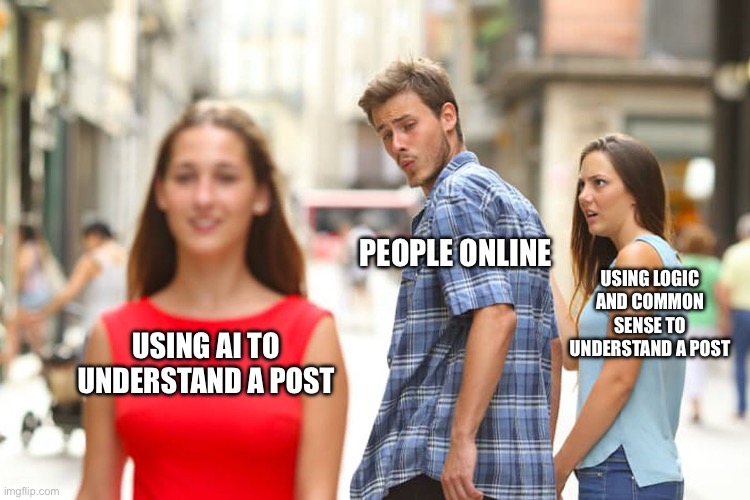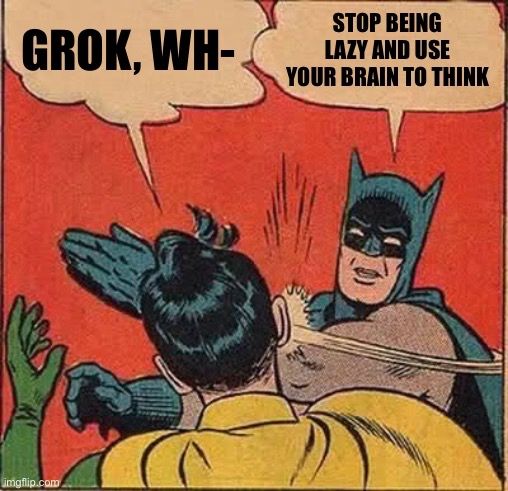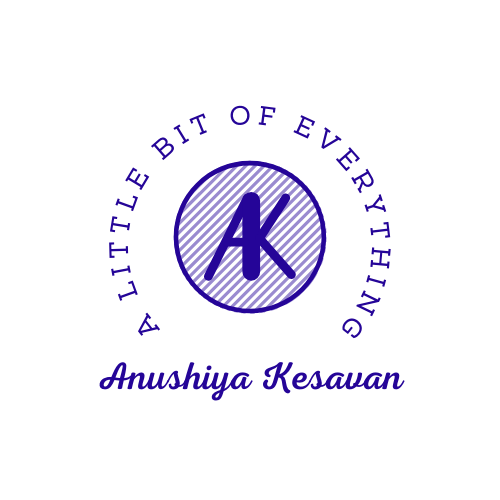Once upon a time, not so long ago, people used their brains to figure things out. When a tricky question popped up, they’d ponder it over, maybe hit the library to read articles and cross-check sources, or even have a chat with a friend to figure it out. Then, AI came along and said “I’ll think for you.” and we just let it.
But first, let’s talk about the magic of AI. This thing can write your assignment, draft your work email, translate BM to English (badly but fast), and even tell you where to makan. Pretty convenient, right?
It’s impressive, I agree, but it’s also turning us all into lazy thinkers.
I’m not against AI. I use it all the time. It’s a great tool. But there’s a fine line between using a tool and letting it do all the thinking for you. These days, people won’t even try to understand the simplest things. They see a wall of text and immediately beg ChatGPT to summarise this or explain that.
Bruh. That’s called reading.
“But It Saves Time!”
Sure. AI saves time. Same way eating Maggi every day saves time. Sure, it’s tasty, cheap, instant—until you realise your brain gets almost zero nutrients. Likewise, by turning to AI for every little thing, we’re offloading our cognitive tasks like they’re last week’s laundry, and our brains are getting, well, flabby.
It’s not just that people use AI to help understand complicated material. They use it to understand anything, from explaining complex scientific concepts to deciphering a social media post that’s probably just a meme anyway. Tweets. News headlines. Emails from their boss. “Hey [insert preferred AI model], what does this mean?”
Come on. You know what it says. You just don’t want to think.
What for need to think? Just ask ChatGPT, Bing, Gemini, Grok, the fridge, your dog. Everyone’s an AI expert these days, kan?

How Did We Get Here?
Let’s be honest: we’re lazy. We want everything pre-chewed, like intellectual baby food.
It started with Google—where you at least had to pick a link. Now, people type “Explain quantum physics to me like I’m five” and pat themselves on the back for being lifelong learners.
Except they don’t learn. They consume. Mindlessly.
The Fall of Skepticism
Back when I was completing my Foundation studies, I had to take 3 subjects of English classes, which aimed to improve our reading comprehension along with our writing skills. I never saw the importance of these classes (other than an easy A), but now, I see the need to ask the right questions, especially now in a world where all kinds of information spreads so quickly.
Media literacy used to mean asking questions:
- Who wrote this?
- Why?
- Is it true?
- What’s missing?
Now? Just paste the link into AI and accept whatever summary it spits out. People don’t check sources. They don’t verify. They don’t even click the article. They want a 10-second TL;DR and they’re happy to take it on faith.
Guess what? AI doesn’t always know. It makes mistakes. It hallucinates. It can be biased. But hey, at least you didn’t have to read the whole article.
The Irony is Delicious
What’s especially funny (if you enjoy dark comedy, like me) is that AI was trained on our collective writing, research, and skepticism. From our articles, essays, debates, research. From the work of people who asked questions. Now we use it so we don’t have to question anything.
It’s like selling your land just to buy a single meal.
Why This Matters
This isn’t just a Boomer “kids these days” rant. The world is already drowning in misinformation:
- Fake WhatsApp forwards in your family group chats
- Dodgy TikTok “news”
- Conspiracy theories that spread faster than dengue
When no one knows how to evaluate information, it’s over. Misinformation thrives. Grifters make bank. Elections get swayed by nonsense memes.
And don’t say “AI will fix it.” AI can generate bullshit just as easily as truth. It’s designed to agree with your assumptions. It doesn’t care about the truth.
We’re trusting an algorithm to do our thinking for us, and that, my friends, is a terrifying thought. A recent study out of MIT even found that frequent ChatGPT users had weaker brain connectivity and struggled to recall information they had “written” with the bot’s help. It’s not just a convenience; it’s a cognitive erosion.
Also, if we can’t tell truth from fiction, guess who benefits?
→ Propagandists
→ Scammers
→ Authoritarians
The less we question, the easier we are to control. It’s not just an academic problem, but a societal issue.
So What’s the Fix?
I’m not saying we should all go live in a cave and burn our smartphones. AI is an incredible tool, and it’s here to stay. But we need to be the masters, not the slaves.
- Be a skeptic, not a cynic. Question everything you see, read, and hear. Who created this? Why? What’s their agenda?
- Use AI as a sidekick, not a superhero. Use it for brainstorming, outlining, or getting a quick summary, but then do the real work yourself. Use your brain to fill in the gaps and add the human touch.
- Feed your brain. Read a book. Listen to a podcast. Have a deep conversation with another human being. Do things that make your brain sweat a little.
- Embrace the struggle. It’s okay to not know everything. The process of figuring things out is where the real learning happens.
Basically, treat it as a guide, not the absolute answer.

Final Thought
The rise of AI is a wake-up call. We’re at a crossroads. We can either continue to outsource our minds and become passive consumers of information, or we can use AI as a tool to become more critical, more creative, and more human.
Think of it this way: your critical thinking skills are a muscle. If you don’t use it, you lose it. When you rely on AI to do the heavy lifting, you’re essentially putting that muscle in a cast. Soon, you’ll be struggling to lift even the simplest intellectual dumbbell.
So, the next time you’re about to ask an AI a question, pause. Take a deep breath. And ask yourself: Can I figure this out on my own? Your brain will thank you.
TL;DR (Irony Fully Intended)
- AI is making life easier—and thinking harder.
- Media literacy is dying because we let it.
- Don’t blame the robots. Blame our laziness.
Want to fix it? Start questioning everything (yep, including this blog post).


